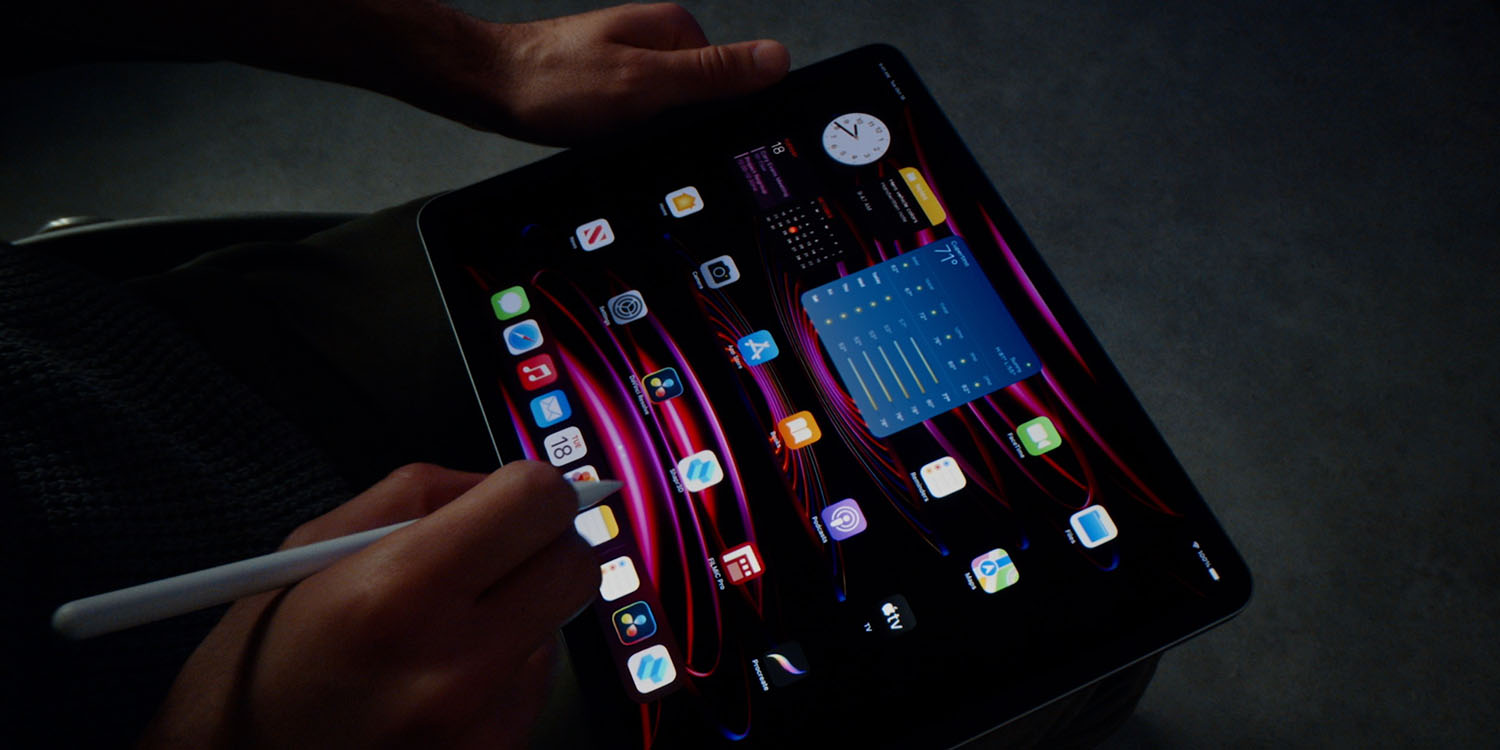
It’s no secret by now that Apple will soon be announcing a new generation iPad Pro featuring OLED displays for the first time in both screen sizes. However, as the announcement nears, we now have more details about what to expect – and a new report claims that Apple is using the best OLED panels on the market for the 2024 iPad Pro.
2024 iPad Pro to use advanced OLED panels
Analyst Ross Young of Display Supply Chain Consultants (DSCC) has once again reported that the new iPad Pro models will indeed be equipped with OLED displays. However, Young was emphatic in saying that Apple has chosen the “best OLED tablet panels on the market” for its new tablets.
OLED panels use organic materials that emit light when an electric current is applied. These panels don’t need a backlight, unlike LCD displays, and each pixel is illuminated individually. This results in more contrast and deeper blacks, since the display can simply reduce the brightness or completely black out pixels in dark areas of the image.
However, OLED also has its downsides, such as reduced brightness compared to backlit panels and being susceptible to burn-in. When Apple brought OLED to the iPhone X in 2017, the company said it had addressed these concerns.
Young had previously said that the launch of the new iPads was partly delayed due to Samsung facing “technical challenges” with the production of these advanced OLED panels. It’s no surprise that Apple wants to have the best panels to show that the new technology is better than what it currently offers in the iPad Pro.
“The OLED iPad panels are expected to be by far the best OLED tablet panels on the market with LTPO, 120Hz refresh, a tandem stack and glass thinning resulting in ultra-thin and light displays with high brightness, extended battery life and long lifetime,” the analyst said in a note to investors.
What does that mean for consumers?

To make these displays brighter and also more efficient, Apple opted for panels with a two-stack tandem structure. This means that the display has two emission layers, which doubles the brightness compared to traditional OLED panels. The two-stack tandem structure panel also significantly increases the lifespan of the display, which is important for a product like the iPad.
Young also notes that OLED panels are much thinner than LCD panels due to the lack of backlighting. Rumors suggest that the 2024 iPad Pro models will be much thinner, which is probably due to the new display technology.
Apple currently uses a regular LCD panel in the 11-inch iPad Pro and a mini-LED panel in the 12.9-inch iPad Pro. For those unfamiliar, mini-LED uses multiple points of backlighting for increased contrast – but it’s far from reproducing perfect blacks like OLED. An OLED panel can also help save battery life in some situations.
Apple has set an event for May 7 to announce the new iPads.
More rumors on the new iPads
- Gurman: New iPad Pro may actually be powered by the M4 chip, touting AI features
- Tim Cook hints at new Apple Pencil 3 coming next month – here’s what the rumors say
- Accessory maker now selling cases for rumored 12.9-inch iPad Air
- New iPad Pro and iPad Air launch likely set for second week of May, expect iPad Pro price increases
FTC: We use income earning auto affiliate links. More.




Comments